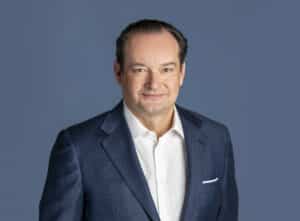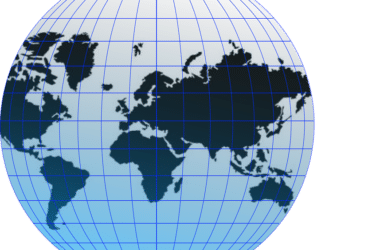Tradeweb CEO Hult: Opportunity for More Electronification & Automation
08.30.2024
1.What does winning “Best Company” mean for Tradeweb?
It seems fitting we received this award as Tradeweb celebrated the fifth anniversary of our IPO. We’re grateful to Markets Media for the honors, especially in the company of other terrific peers. It is a welcome reminder that prioritizing clients and shareholders continues to be the right approach and one that has helped translate into 24 consecutive years of revenue growth. We’re living through an increasingly complex world of market volatility and heightened geopolitical tensions, and it’s not easy for companies to avoid getting distracted or knocked off course. But there’s something to be said for navigating through the storm and sticking with what you know achieves results. Core to all of this is having great people, and we’ve got some of the best in the business at all levels.
2. How has Tradeweb managed to succeed and keep evolving over a long period of time?
There are many reasons but let me highlight a few. Beginning with our team, Tradeweb’s culture of collaboration is our north star. That is what helps connect our people with our clients to develop innovations that began with our first U.S. Treasury trade 26 years ago, and helped to develop market-first technologies and capabilities that are helping clients reach their increasingly sophisticated trading goals. Second, my view is that there is still plenty of opportunity for further electronification and automation in many corners of the market, and we’re seeing progress each quarter in that area. Finally, and this has been especially important in recent years, we’ve taken a thoughtful approach to Tradeweb’s own growth. I think we’ve struck the right balance and momentum between growing our core business and leaning into inorganic opportunities where it makes sense.
3. There is lots of competition in your space – how has Tradeweb managed to differentiate itself?
We are in more markets than just about any other platform, and that means we have more competitors as well. I think that has only made us better, and I’ll bet we’re making our competition better as well. What makes us unique is that we see a world where markets are increasingly interconnected, and we’ve built Tradeweb to help our clients capitalize on that evolution.
4. You have completed three acquisitions in the past 12 months – Yieldbroker, r8fin and ICD. How important are acquisitions to your continued growth?
We have high standards when it comes to deals, and each has a unique role to play in the direction of our current and future business. Together they’re helping strengthen our technologies while expanding our client base and global footprint. ICD was our largest investment and marks a stark, new runway for our company by opening up corporates as our fourth client channel – a very big deal for us. Yieldbroker has extended our global footprint and increased access to the very important and fast-growing markets in Australia and New Zealand. And r8fin has evolved our U.S. Treasury offering by legging cash and futures trades while upping our algorithmic game. It’s also helping make further inroads with key clients such as hedge funds, professional trading firms, and dealers.
5. You have been CEO of Tradeweb for 18 months following many years as President – what has surprised you most about the role since taking the helm?
I probably had fewer surprises than most new CEOs because I had a pretty strong hand in running the company during my years as president. One thing I learned about myself long ago is that I am at my best as a leader when I am close with our clients. Becoming CEO I obviously took on a whole range of new responsibilities, but I’ve been vigilant about protecting that client proximity no matter what.
6. How would you describe your management style?
Having spent most of my career at Tradeweb, I’ve touched pretty much every product or function in one way or another so that’s been an asset as CEO. It’s not about micromanagement, but rather about being there to support colleagues in a way that empowers them and helps to understand what role they need you to play. I think I am an empathetic leader to a point, but I also have high expectations of everyone around me and I want us to win.
7. What leaders (corporate or otherwise) have influenced you and why?
There are a lot of great corporate leaders out there who have influenced not only my worldview in business or finance, but also how I interact with people generally. Jamie Dimon, for example, is probably one of the most powerful people in finance, but when you meet him at a client event, there’s no ego or barrier. You get a sense he really wants to know how you’re doing, that he cares about your business and he’s asking the right questions. You walk away from an interaction with a good feeling, and that’s key.







